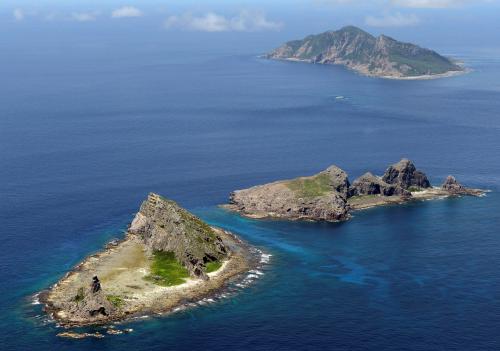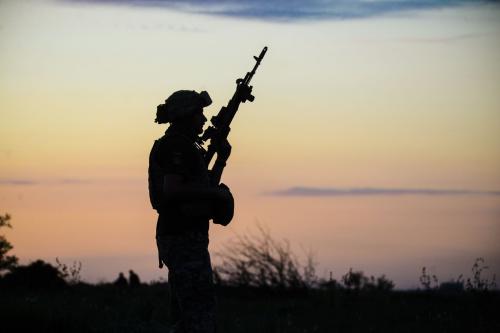As U.S. relations with Russia and China become more tense, and as the Pentagon elevates its concerns about the military threats both countries could pose to the United States, Brookings Senior Fellow Michael O’Hanlon explains in a new book how conflict over seemingly minor stakes could escalate into a major war. In “The Senkaku Paradox: Risking Great Power War Over Small Stakes,” O’Hanlon makes recommendations for how such conflicts can be contained before they become a global disaster. He discussed the book and his recommendations in a recent event moderated by NPR host Rachel Martin.
What is the Senkaku paradox?
The Senkaku islands, or Diaoyu islands as they are called by the Chinese, are a string of tiny and uninhabited islands in the East China Sea. While Tokyo and Washington agree that Japan administers these islands as part of the U.S.-Japan Security Treaty, O’Hanlon explained, China also claims them. If China were to seize one or more of the islands, presumably the United States would be obligated to come to Japan’s assistance to reestablish control of the occupied territory. However, O’Hanlon said that if the conflict escalated, a major war between nuclear-armed countries could ensue—all over a few barren pieces of land with little, if any, inherent value.
A small-scale Russian incursion to “protect” a Russian-speaking enclave in Estonia, a NATO ally, is another possible scenario O’Hanlon outlined, in which a large-scale military conflict could break out between the United States and Russia.
A war between great powers is more likely than you think
During the event, O’Hanlon noted that the Pentagon has made Russia and China its top priorities due in part to Vladimir Putin’s annexation of Crimea and Xi Jinping’s militarization of the South China Sea. O’Hanlon explained that this is a re-emphasis on great power competition that the U.S. hasn’t seen since the Cold War. He said: “Most people don’t walk around town thinking that we are about to go to war with Russia and China, but the Pentagon thinks we just might be.”
In addition, O’Hanlon warned that new technology is only increasing the dangers of this threat. As he explained: “By 2040, whatever ability China and Russia have today to see us coming with big ships close to their own territory and be able to put out various kinds of sensors or weapons to stop that is only going to get more potent—they are going to have robotics swarms at that point.”
How can major military conflict be avoided?
O’Hanlon contended that if Washington signals that it might not respond as forcefully to small-scale annexations as China and Russia currently think it will, then the door could open to more aggressive behaviors toward U.S. allies and interests. However, if the United States did respond as strongly to these types of relatively minor incursions as it has promised its allies, it could lead to a war between nuclear powers.
What options does Washington have? O’Hanlon explored the military, economic, and diplomatic options that could resolve Senkaku-like scenarios before they reach a more global and deadly scale. He stated that he “wants to avoid [the United States] firing that first shot in anger at China over a Senkaku island.”
O’Hanlon recommended that the United States beef up its local defenses in the Baltic States and encourage NATO states to prepare to cut off Russian oil imports if an economic response is needed.
For more, watch the full event or read Michael O’Hanlon’s latest book, “The Senkaku Paradox: Risking great power over small stakes.”
Mimi Cottingham contributed to this post.




Commentary
How to keep small disputes from escalating to conflict between the US and China or Russia
May 13, 2019